Conferences / Lectures / Talks
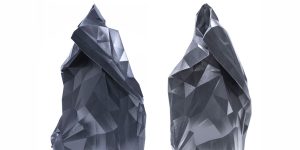
Uncertainty with AI-terity (Music Performance)
Koray Tahiroğlu (FI/TR)
The composition Uncertainty keeps the musician in a hesitant state of performance, providing a non-rigid but identifiable musical events, followed by ever shifting new sounds. Uncertainty is a composition written for the AI- terity instrument that comprises computational features of a particular artificial intelligence (AI) model to generate relevant audio samples for real- time audio synthesis. The unusual behaviour of the Al-terity puts the performer in an uncertain state during performance. Together with being able to move through timbre-changes in sonic space, the emergence of new sounds allows the musician to explore a whole new range of musical possibilities. Composition turns into a continuous state of playing, reformulating an idiomatic relationship with the Al-terity and opening up a fresh variety of musical demands.
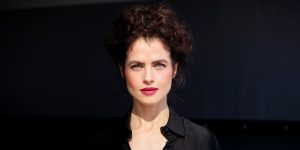
Key Note: Neri Oxman
A multi-disciplinary designer, Oxman founded The Mediated Matter Group at the Massachusetts Institute of Technology in 2010 where she established and pioneered the field of Material Ecology, fusing technology and biology to deliver designs that align with principles of ecological sustainability. Oxman became a tenured professor at MIT in 2017.
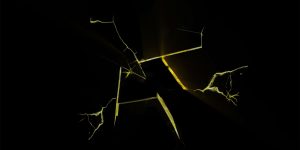
Art in Flux Live: Autonomy @ Flux' channel
The Art in Flux founders introduce the ethos of the organisation and their own practices through live video tours.
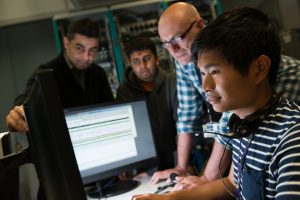
STEAM Innovation and Curriculum
Laura Veart (UK), Tom Cahill-Jones (UK)
The conference offers inspirational examples of integrative and interdisciplinary education and explores how they be could be further adapted and implemented within other educational and cultural contexts.

Boost of the digital economy in times of crisis
Jan Trionow (AT)
Jan Trionow, CEO of Hutchison Drei Austria, will take an optimistic glance into the future and give viewers an idea of how 5G will connect Europe. He will also comment on the massive opportunity inherent to the current crisis, and how it can be the ultimate starting point for the digital economy.
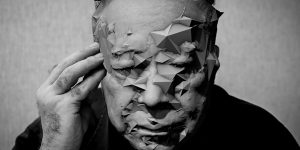
Artist Talk: Hsin-Chien Huang (TW)
Artist Talk by Hsin-Chien Huang (TW) about his project 'Bodyless' which got the Honorary Mention in the Computer Animation category of the Prix Ars Electronica 2020

Demystifying AI with Music
Roberto Viola (IT), Elaine Chew (US/UK), Patrick van der Smagt (DE), Matthias Röder (DE)
What could be the role of AI in music then? The conversation will reflect on these questions also in the light of a European vision on ‘trustworthy AI’.

Artist Talk: Joy Buolamwini (US)
Artist Talk by Joy Buolamwini (US) about the project 'Algorithmic Justice League (AJL) - AI, Ain't I A Woman?' which won the Award of Distinction in the Digital Communities category of the Prix Ars Electronica 2020.

Artist Talk: Toby Auberg (SE)
Artist Talk by Toby Auberg (SE) about his project 'Pile' which got the Honorary Mention in the Computer Animation category of the Prix Ars Electronica 2020.
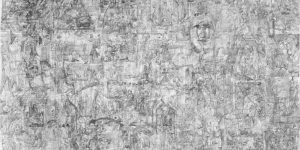
Creative Question Challenge: Quietly Subversive
Ciprian Mureșan (RO), Sanneke Stigter (NL), Corina Bucea (RO)
'Let us finish what we started'. This is how the UN introduces its first Sustainable Development Goal - to end poverty in all forms and dimensions by 2030. The 17 Sustainable Development Goals and their 169 targets have been described as a sprawling, misconceived mess of grandiose intentions. The title of the development agenda itself - 'Transforming our World' - oozes utopian ambition. It was adopted by 193 nations in 2015. Five years later and with ten years left, how do you think our world will transform?
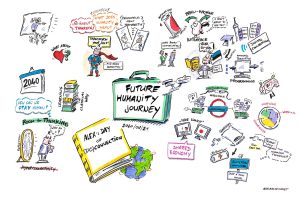
Future Humanity Journey
A day in 2040: what would our day look like in 20 years? Future Humanity Journey is an experimental workshop. Four innovators created a scenario of future humanity to better understand how humanity will develop and evolve.
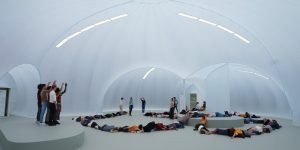
Creative Question Challenge: Embodied perception and life as movement
Alexandra Pirici (RO), Paco Calvo (ES), Corina Bucea (RO)
'Let us finish what we started'. This is how the UN introduces its first Sustainable Development Goal - to end poverty in all forms and dimensions by 2030. The 17 Sustainable Development Goals and their 169 targets have been described as a sprawling, misconceived mess of grandiose intentions. The title of the development agenda itself - 'Transforming our World' - oozes utopian ambition. It was adopted by 193 nations in 2015. Five years later and with ten years left, how do you think our world will transform?
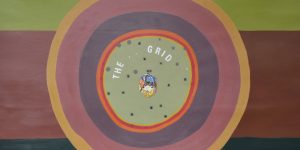
Community Creates Mobility: Participatory Speculative Critical Design beyond dream-making for the City.
Eveline Wandl-Vogt, Niki Ernst, Claudia Falkinger, Peter Zehetbauer, Wolfgang Preisinger, Elisabeth Füssl, Penesta Dika, Aleyda Rocha Sepulveda; lightning talk: Jeffrey Schnapp
Co-Envisioning Mobility Infrastructures - The challenges facing cities around the globe are complex and multidisciplinary by nature. Attempting to solve them in conventional linear ways is insufficient for addressing these manifold human-environment relationships that are at the heart of these challenges. Alternative approaches are necessary.
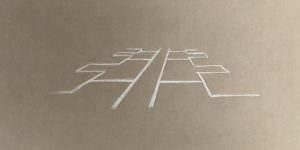
Affordances of spaces
Elena Cologni
Accelerating Knowledge for the SDGs: Life streamed session - The work developed from a two-year long investigation into ‘architectures of difference’, is based on a postcard in sculptor Barbara Hepworth’s collection (circa 1952), in a note she refers to this in terms of the space between people: it’s relational and social aspects. The piece also evolved from considering the punctuations found in our cities’ grounds, and how these contribute to developing a sense of attachment and belonging, which is at the basis of wellbeing (eg. Lived Dialectics, 2016, MuseumsQuartier, Vienna; Seeds of Attachment, 2016/18, New Hall Art Collection, Cambridge).
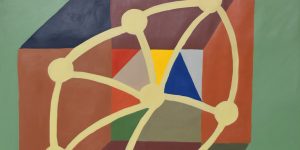
museum of knowledge science
Eveline Wandl-Vogt, Atiq Hashmi, Andreas Brandner, Louise Deininger
Virtual co-design session - Knowledge is at the heart of sustainable development. The achievement of the Sustainable Development Goals requires therefore effective knowledge management. However, knowledge needs to be understood in regional, societal, historic and cultural context. Art and culture are essential to the understanding of knowledge, specifically when knowledge - and its various aspects and processes - is reflected as a subject of art. Beyond reflecting knowledge, art is also a medium of knowledge, like articles or books.
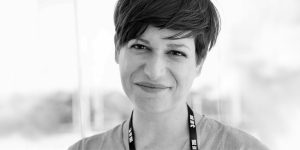
Key Note: Lorena Jaume Palasì
Founder of The Ethical Tech Society. Her research focuses on the ethics of digitalization and automation and, in this context, on questions of legal philosophy. 2017 Appointed by the Government of Spain in the Council of Eminent Persons on Artificial Intelligence. Former member of the High Level Expert Group on Artificial Intelligence of the EU Commission. 2018 Theodor Heuss Medal "for their contribution to a differentiated consideration of algorithms and their mechanisms of action" with the AlgorithmWatch initiative.
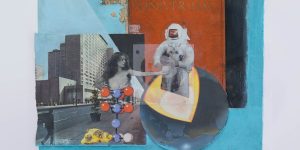
Algorithm Inventarium: methoda-thon
Matthew Battles, Max Haarich, Aleyda Rocha Sepulveda, Eveline Wandl-Vogt
Towards Inclusive, Sustainable Futures - The experimental "methodathon" is part of a series of “algorithm inventarium sprints” related to the project Algorithm Inventarium (AI+): diverse co-creation interventions combining action research approaches for accelerating the collaborative auditing of algorithms (e.g. by applying gamification techniques for data awareness, or auditing through interfaces). The aim of this session in connection with the ars electronica festival community is to identify, co-create and/or discuss specific methods, protocols and experiments for participatory research in the spirit of citizen science and community-based research in Vienna.
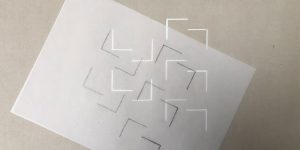
Algorithm Inventarium: The Greater Good Ethics Canvas
Eveline Wandl-Vogt, Henry Dobson, Max Haarich
Towards Responsible, Humane Technologies - In this interaction we are introducing the “Greater Good Ethics Canvas” to be used for the development of Humanity Centered Technology.
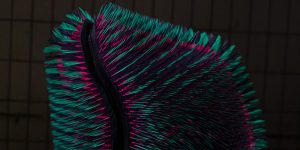
AILab
at the 2020 Ars Electronica Festival
The European ARTificial Intelligence Lab emerged from the European Digital Art and Science Network, a creative collaboration between scientific institutions, Ars Electronica and cultural partners throughout Europe that unites science and digital art. The European ARTificial Intelligence Lab takes up this theme and addresses the visions, expectations and fears that we associate with artificial intelligence.
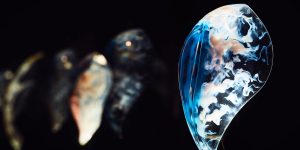
STARTS Day
The Science+Technology+Arts = STARTS Initiative is a program of the European Commission to encourage synergies between the arts and technology that support the innovation industry and society. STARTS promotes the inclusion of artists in research and innovation activities thoughout Europe.


